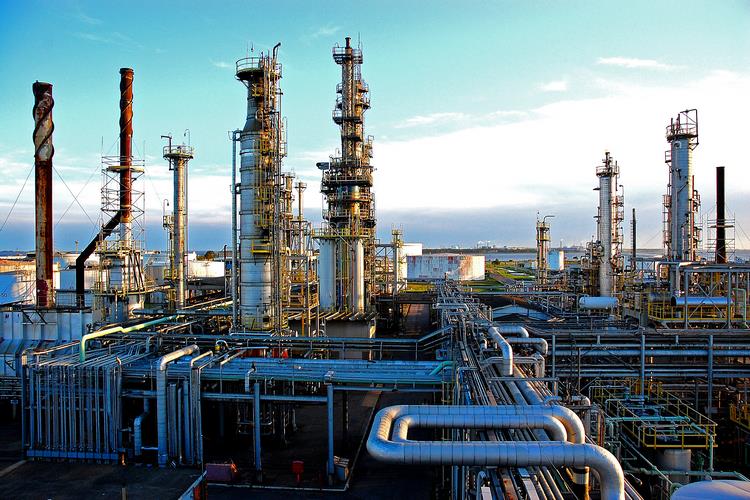
The Riograndense Refinery (RPR) successfully carried out a co-processing test of 5% biomass pyrolysis oil or bio-oil (non-food biomass raw material) with mineral filler. As a result, the refinery, located in Rio Grande (RS) and in which Petrobras, Ultra and Braskem have equity interests, became the first in the country capable of producing fuels with cellulosic content.
Using technology developed by Petrobras, the co-processing test took place at the RPR catalytic cracking unit (FCC), lasted 7 days and was completed on February 17. A highly specialized technical team from Petrobras and Riograndense monitored the planning and execution of the procedures, providing support during the commissioning, start-up, operation and shutdown stages of the bio-oil supply and injection system at the unit.

Bio-oil is a viscous, dark-colored liquid rich in organic compounds. Like petroleum, it requires additional treatments to be used in engines or turbines. When co-processed at RPR's FCC unit, it was converted into several fractions such as fuel gas, LPG and components for formulating gasoline and marine fuel with renewable content.
Innovative process in the refining industry
Catalytic cracking is one of the main conversion processes used in oil refineries around the world, responsible for breaking down molecules from oil to produce products such as LPG, gasoline, diesel and inputs for the chemical industry. To perform the test, RPR's FCC underwent adaptations to enable the simultaneous processing of bio-oil and diesel from oil. The catalyst used is from the ReNewFCC line, produced by Fábrica Carioca de Catalisadores (FCC SA), a joint venture between Petrobras and Ketjen, which produces catalysts and additives for the refining industry.
The bio-oil used as raw material for the test was supplied by Vallourec Unidade Florestal. Its production process was certified by the International Sustainability and Carbon Certification (ISCC) and consists of condensing vapors generated in the production of eucalyptus charcoal, avoiding the emission of greenhouse gases.
Pioneering global biorefining
In 2023, RPR was the first in the world to process 100% vegetable oil in FCC, producing fuels and inputs for the chemical industry, such as propylene and bioaromatics (BTX – benzene, toluene and xylene), also using technology developed by Petrobras.
'The recent test represents a significant advance for global biorefining, as it can enable the transformation of wood and other widely available agroforestry waste into derivatives typical of oil refining,' says Petrobras’ director of Engineering, Technology and Innovation, Renata Baruzzi.
'The innovative aspect of this new development by Petrobras’ Research, Development and Innovation Center (CENPES) marks the introduction of bio-oil into an existing refining asset, reducing the need for additional investments and opening a new perspective in the energy transition and value generation for Brazilian industry,' says Petrobras’ Director of Industrial Processes and Products, William França.
'With COP 30 approaching, this innovation reinforces the leading role of Petrobras and Brazil on the international stage, consolidating the company's role in leading the promotion of technological solutions for an energy transition in our country,' says Petrobras' director of Energy Transition and Sustainability, Mauricio Tolmasquim.
The initiatives are part of Petrobras' BioRefining Program, which foresees investments of US$1.5 billion over the 2025-29 Business Plan. The co-processing test at RPR was carried out in accordance with the Research, Development and Innovation (RD&I) clauses of the National Oil, Gas and Biofuels Agency (ANP), which regulate resources allocated to innovation projects by oil and gas companies.
The cellulosic content test is one of the initiatives for the refinery’s conversion in the coming years. 'In line with our commitment to leading a fair energy transition in Brazil, we will transform the Riograndense Refinery into the first refinery in the world to manufacture 100% renewable products. It will be a biorefinery that will produce fuels only from vegetable oils,' says Petrobras CEO Magda Chambriard.
Source: Petrobras











